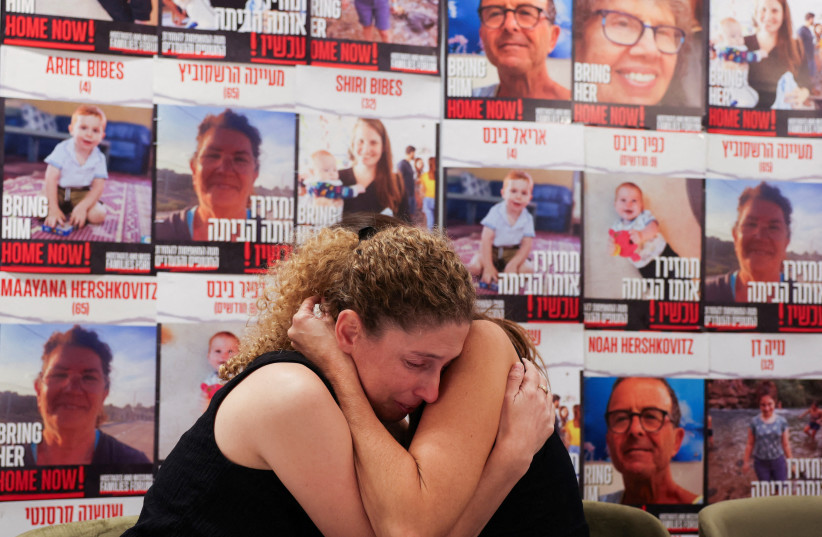Hila Rotem-Shoshani, who was a hostage in Gaza, recounted the conditions and experiences in Hamas captivity in an interview with The New York Times on Wednesday.
“I heard the voices of kids outside, and we were kept with other people living inside the house. I forced myself to drink the little water that they gave me,” were the first things she recounted. Her captors told her, “Don’t try to escape, they hate you. If you go outside, they will hurt you.”
Hila was kidnapped from her house in Kibbutz Be’eri, along with Emily Hand, who was staying at her house for a pajama party. When Hamas arrived and began raiding the kibbutz, Hila and Emily, along with Raya Rotem, hid in the bomb shelter of Hila’s house. They were there for six hours.
Eventually, the Hamas terrorists broke into the shelter with pistols and knives and took the three captive. They were forced into a car and had to witness burnt bodies and buildings along the way. One of the terrorists noticed Hila holding a doll, so he ripped it from her hands and threw it to the side of the road.
“The doll was in my hands the whole time; I didn’t even notice,” she said. “When you’re scared, you don’t pay attention.”

Hila is the youngest of the hostages who returned to give a full interview about the conditions of captivity. She said the car ride from her home into Gaza was the first time she understood “just how close” the Strip was to the community she grew up in.
Hila was taken to a house along with two other hostages. In the beginning, they were kept in a room with an armed guard, but eventually, they were moved to the living room.
“They understood that we wouldn’t escape,” she said. “Outside was also dangerous; why would we run?”
“The captors gave us little food – half of a pita, some halva, canned beans, and a little bit of water,” she said.
Sometimes the captors would eat, and the hostages wouldn’t, Hila said, because there were “days that there simply wasn’t food, and they kept it to themselves.
“Sometimes we heard the voices of other children, and we understood that there were more people in the house,” she said.
Eventually, Hila and the other captives mustered up the courage to ask for permission to use the bathroom in the house, which is how Hila came to learn the word for it in Arabic – hammam.
She recalled one instance in which an explosion caused the window of the room she was staying in to shatter. She also recalled several times they moved her in the middle of the night under the cover of darkness.
“We’re moving you to a safer location,” Hila said they would tell her. “However, we didn’t know if that was the case or if we would be killed.”
The captors told the girls to remain silent and to play cards, she said, “but how often can you play cards – every hour of every day?”
A mother missing her children
A month and a half after Hila was taken hostage, the captors separated the young girls from her mother.
“My mom began to worry that something wasn’t right when they didn’t take her,” she said, adding: “And then, they simply took us away, and she remained there.”
The girls were released as part of the hostage deal at the end of November and returned to Israel. The separation of Hila and her mother disrupted the negotiation process, something that incited frustration across Israel. In the end, Hila’s mother was released after a few days – the day after Hila’s 13th birthday.
